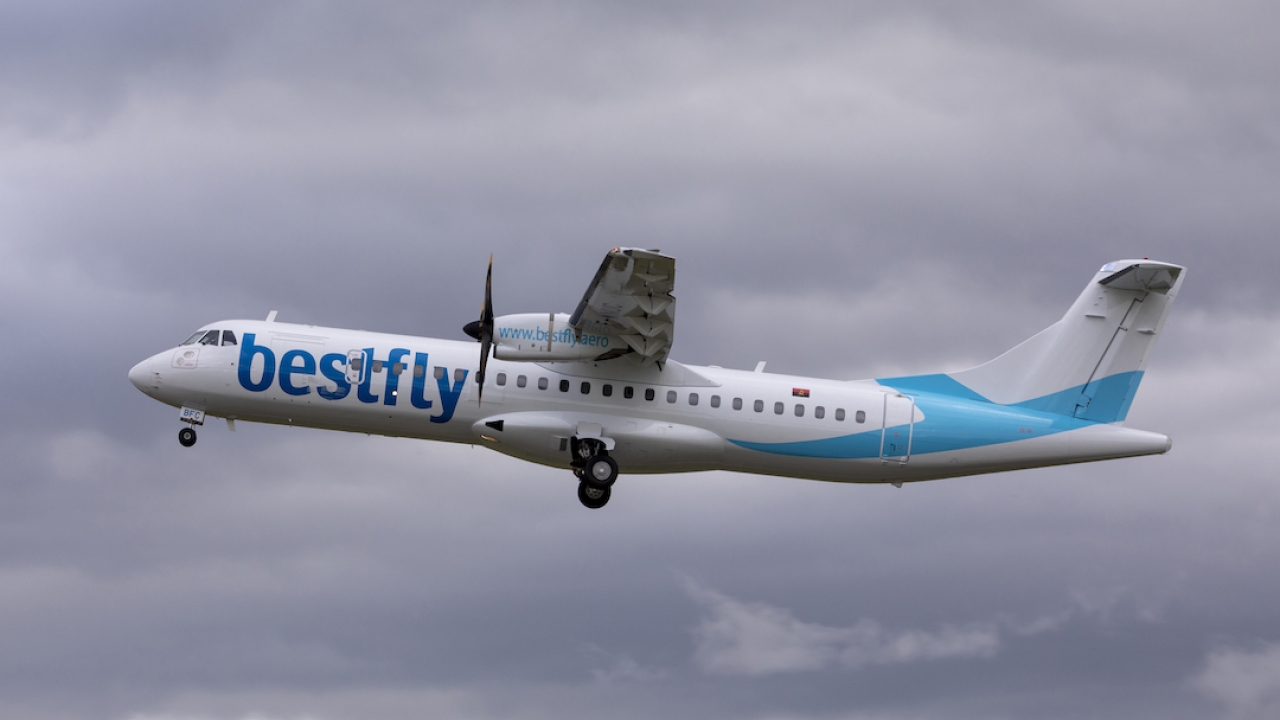Bestfly on the front foot - home and away
Taking on an emergency airline contract abroad and modernising its helicopter fleet at home has seen Angolan operator, Bestfly, expanding its roles.

Doubling up: Bestfly’s fleet of two ATR 72-600s is doubling to four as it takes on the new contract in Cabo Verde. Picture: ATR.
When an airline is considering starting an operation in a new country, months of work normally precede the day of the first flight.
But, when an archipelago for which air transport is a daily necessity suddenly loses its sole airline operator, those months of preparation are a luxury that is simply no longer available.
That problem arose in Cabo Verde, off the west African coast, in June.
Local carrier TICV, previously known as Binter CV and part of the Spain-based Binter Group of companies, had provided an inter-island service since 2016. However, it was unable to come to an agreement with the archipelago’s government over financial support in the wake of the Covid-19 pandemic and ended its services in mid-May.
Enter Angola’s Bestfly: “We didn’t have a contract when we started to prepare for entry into service, a process that took two to three weeks,” said Bestfly’s CEO, Nuno Pereira. “From the contract signing to starting operations was two days.”
Handling the ultra-rapid start to operations, said Pereira, was helped by the fact that both Cabo Verde and Angola have Portuguese as a common language, both countries having previously been Portuguese territories. “It eased communication. There was cooperation between both civil aviation authorities and governments.”
Bestfly took over the shell of TICV from Binter and quickly moved one of its two ATR 72-600 turboprops up from Angola to start services. Since then, it has leased a further pair of ATR 72-600s, one of which was added to its new operation while the other replaced the reassigned aircraft in Angola. Ongoing services will be conducted under the TICV name.
Bestfly’s activity in the island group, which lies some 630km (340nm) west of Senegal, began with six sectors a day, which had doubled to 12 daily by mid-July. “We’re flying 10 hours a day,” said Pereira in July. The shortest sector is 12 minutes, the longest is around 1 hour 10 minutes.
“This is the first time we’ve handled this type of high-frequency service. We were flying 500 legs a month with one aircraft. We’ve had more than 80% load factors, which is fantastic.”
The TICV operation is being restructured to make it sustainable over the long term.
The Cabo Verde Government initially engaged Bestfly on an emergency six-month contract, but the Angolan airline hopes to make its service in the archipelago a long-term one, with the acquisition of TICV transforming the company’s operation in the archipelago from that of a foreign carrier into that of a domestic airline.
Meanwhile, back in Angola, Bestfly is strengthening its offering in the helicopter market with the delivery of a pair of new Leonardo AW139s.
The helicopters, leased from Abu Dhabi Aviation (ADA), will be employed primarily on offshore services for the oil and gas industry, said Pereira. They will be outfitted for medevac duties.
Bestfly has contracts with several major oil companies such as Total, Exxon, and BP.
It is anticipated the aircraft will each fly 30 to 50 hours per month on duties including search-and-rescue, medevac, and ad hoc work.
The aircraft will replace two existing seven-year-old AW139s and feature the latest upgrades. They will also mark a move by the Angolan operator to having greater input into the maintenance and support of its helicopters.
“They have the latest batch of avionics,” said Pereira. “That’s one of the most significant improvements.” Other improvements include an increase in carrying capability from 12 to 15 passengers.
Bestfly has had a close relationship in recent years with helicopter service provider, Heli-Union, which has given extensive operational and maintenance support. While Pereira emphasised that the relationship with Heli-Union remains excellent: “We are now in a transition phase by adding the new choppers,” with Angolan law stipulating that companies, such as Bestfly, should use more Angolan pilots and mechanics.
Angolan personnel will be trained on the new machines at the Abu Dhabi Aviation Training Centre.
With competition strong in the oil and gas market, Bestfly decided to acquire the latest models of the AW139 to give itself an edge in the marketplace, said Pereira: “We’re offering a better product with brand-new machines.”
The new aircraft are “oil-and-gas offshore-configured”, said Dr Mark Pierotti, ADA’s commercial department director.
“They’re seven-tonne machines; they are more powerful and can take more weight. They have floats and state-of-the-art safety equipment that the oil and gas industry insists upon.” This includes new GPS-enabled life rafts, should the worst happen and one of the helicopters has to ditch offshore.
“They’ll be based in Luanda, operating under Bestfly’s air operator’s certificate (AOC), but will be owned by ADA and we will support them with pilot training in Abu Dhabi and full spare parts,” added Pierotti.
The aircraft will be supplied on a five-year lease that could be extended and could, potentially, lead to more aircraft being supplied, he added.
The venture with Bestfly is ADA’s first in Angola, although the company already has significant links with Africa, with aircraft located in several countries.
“It’s a fairly big market for us,” said Pierotti. “We placed two aircraft last month in Zambia and South Africa.” The company also has machines in Nigeria.
Asia and Africa are definitely a strategic interest at ADA: “We would like to develop our relationship with existing customers, but I’m also looking for more clients.”
One route to finding new customers, he said, was the Aviation Africa conference that has been held in recent years in Kigali and Addis Ababa and which is scheduled to return to the Rwandan capital again next year.
Pierotti used the event to search for new locations in which to place aircraft, as well as for new partners and lessees and “It’s starting to pay off now.”
Stay up to date
Subscribe to the free Times Aerospace newsletter and receive the latest content every week. We'll never share your email address.


